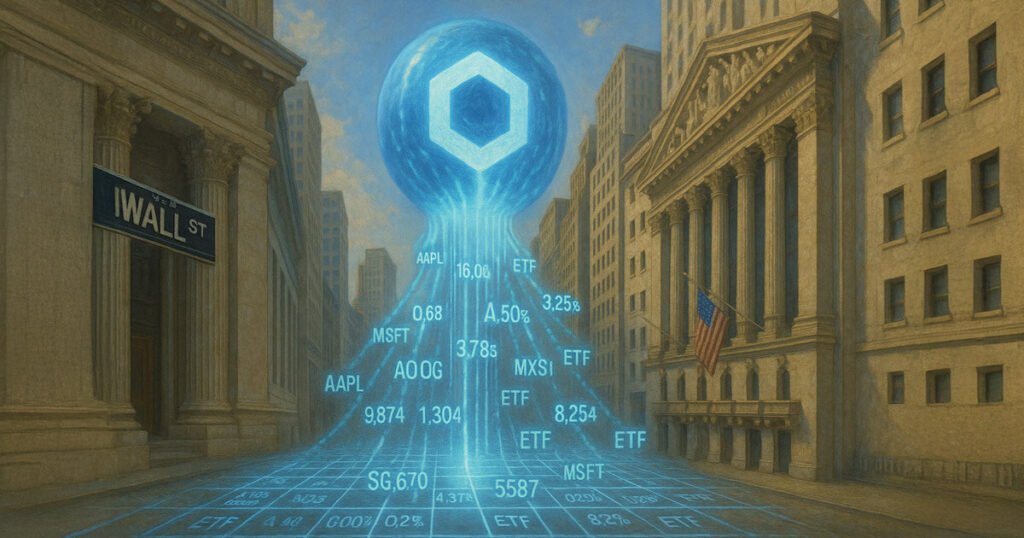Chainlink Introduces Data Streams: A Game-Changer for Blockchain and Financial Markets
Chainlink has recently unveiled an innovative product called Data Streams, aimed at revolutionizing how live pricing data for major U.S. equities and exchange-traded funds (ETFs) is delivered to blockchain networks. As reported on August 4, this new tool is set to provide low-latency, real-time data on high-profile assets like SPY, QQQ, NVDA, AAPL, and MSFT. This development is expected to not only enhance trading efficiency but also pave the way for a slew of new applications in the tokenized asset space.
Seamless Integration Across Blockchain Networks
The Data Streams service is now operational across 37 blockchain networks, which allows for an extensive range of creative financial applications. Some of the potential use cases being explored include tokenized stock trading, perpetual futures, and synthetic ETFs. These innovations are critical for developers looking to create advanced financial products that could mirror the features of traditional financial markets but with the added benefits of blockchain technology.
Decentralized Oracle Networks (DONs)
Chainlink’s Data Streams aggregates real-time data from various primary and backup sources, ensuring continuous uptime and reliability. The information is processed through Chainlink’s decentralized oracle networks (DONs), which deliver data in a structured format to enhance usability on-chain. A standout feature of this service is the timestamping of each data point, enabling platforms to distinguish between current and outdated prices. This functionality is particularly significant for automatic trading suspensions during market closures, thereby adding another layer of security and risk management.
Enabling Advanced Financial Products
The implications of Data Streams extend beyond simple data delivery. The advent of this service sets the stage for sophisticated financial instruments, including perpetual contracts, lending and borrowing platforms, and synthetic ETFs. The real-world asset (RWA) market is projected to grow to $30 trillion by 2030, showing that the infrastructure provided by Data Streams is becoming increasingly essential for the security and scalability of tokenized equity markets.
Bridging Traditional Finance and Blockchain
Chainlink’s Chief Business Officer, Johann Eid, emphasizes that Data Streams represent a pivotal step in bridging the gap between traditional finance and blockchain technology. “This is a significant leap forward for tokenized markets—closing a critical gap between traditional finance and blockchain infrastructure,” Eid stated. This integration of verified, real-time data into blockchain networks can potentially transform how financial instruments are traded and managed, making the ecosystem more accessible and efficient.
Adoption by Leading DeFi Protocols
Notably, the launch of Data Streams has already garnered attention from leading decentralized finance (DeFi) protocols. Platforms like GMX and Kamino Finance have integrated these data streams, highlighting their importance in enhancing user experience while ensuring trust and security. Kamino Finance co-founder Thomas Short remarked, “The launch of Data Streams for US equities and ETFs is a critical milestone toward a truly composable on-chain financial system that matches the scale and sophistication of traditional markets.”
In conclusion, Chainlink’s Data Streams have opened a new chapter in merging blockchain technology with real-time financial data. With widespread implications for the tokenized markets, including advanced financial products and robust decentralized platforms, the future looks promising for this integration. As we approach a new era of financial technology, the role of services like Data Streams will be crucial in shaping how markets operate on a global scale.


